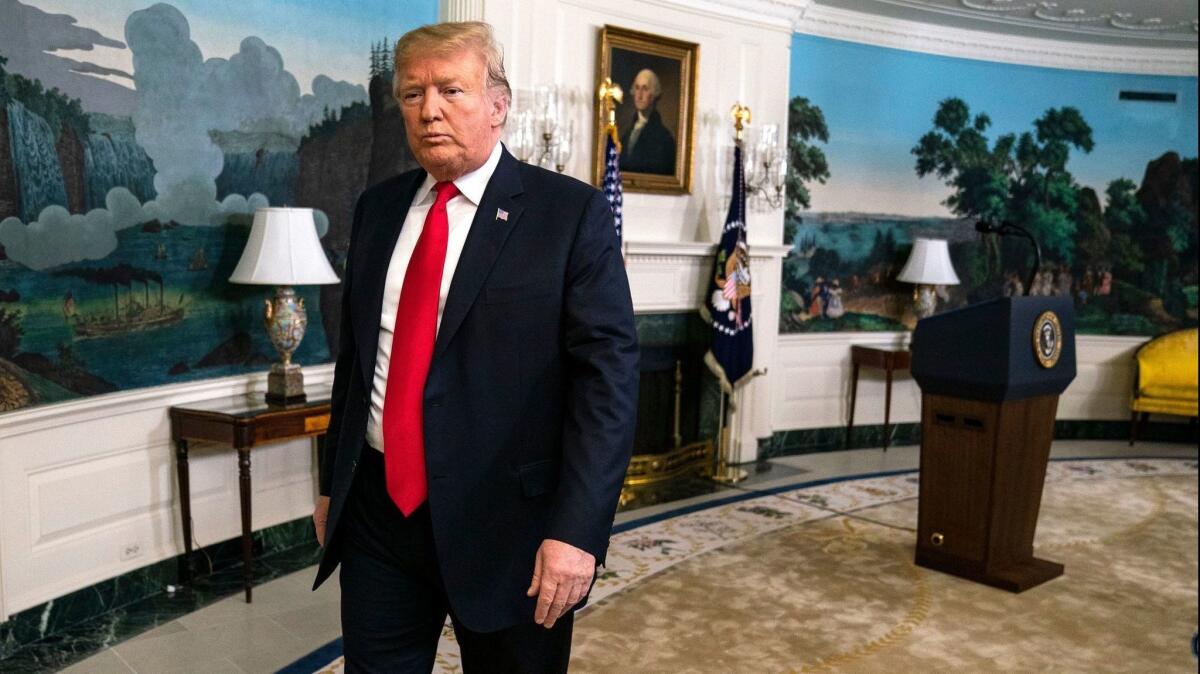Op-Ed: Terrorists don’t shut down just because governments do

On Jan. 15, at least 21 people were killed in a complex terrorist attack at a popular hotel, restaurant and office complex in Nairobi, Kenya. An American was among the dead, and other Americans were trapped at the scene for hours.
In the wake of the attack, despite the U.S. government shutdown, dozens of embassy staff worked day and night to gather information on the attack, provide public guidance to Americans in the country, respond to Americans in need and assist the Kenyan authorities with evidence collection and intelligence.
I know the scene well. Until a year ago, I worked for the State Department as a Foreign Service officer based in Nairobi, and it can be a dangerous place to serve. In 1998, the embassy became one of the first American facilities targeted by Al Qaeda for a major attack. We’ve worked closely with the Kenyan government on counter-terrorism efforts in the country and in neighboring Somalia ever since.
Federal employees overseas often have to work and live in the shadow of terrorist threats. In Nairobi, as in many other dangerous locations, federal workers are taught to look for exits when they enter a mall or restaurant. They learn trauma first aid skills and evasive driving tactics in required counter-terrorism training. They work long hours for less pay than they would earn for comparable positions in the private sector.
Government workers perform an array of services we all depend on. In the foreign policy arena, this includes global security itself.
And in recent weeks, many have received no pay at all.
Two days after the attack, the Trump administration called all embassy employees back to work, acknowledging the critical importance of the State Department’s national security mission. But they have no idea when they’ll receive the pay they’ve already missed.
While I’m no longer in government employment, I have a sense of how a government shutdown can feel when you’re far from home in a dangerous place.
In 2013, I was a U.S. Foreign Service officer posted to Juba, South Sudan, when the government shut down for 17 days. As “essential” staff, we were required to continue working -- without paychecks. During that period, I reported on human rights abuses, political developments and violent conflict in the lead-up to a civil war, I also visited American citizens wrongfully imprisoned and facilitated their release and medical care, and I helped the family of a deceased American recover and repatriate his body. The work felt essential.
We were eventually paid. But working long hours without a regular paycheck in a hardship post, far from family and friends, not to mention good medical care, takes its toll, and the casual manner in which Congress treated the work we were doing then made me question whether it was valued.
Like many other professionals working for the federal government, I took a significant pay cut to join because I sought to serve a greater cause. But if your employer doesn’t take your work seriously, what can you really achieve?
In 2013, the shutdown was an insult, but we did not face the same disdain from our leadership that federal employees face today. Morale among State Department employees was low even before this shutdown, thanks to the disrespect President Trump has consistently shown them. Many of the best and brightest have already headed for the door. We should all be grateful for those who continue to show up to serve, but no one could blame them for not doing so, and at some point, they won’t.
Enter the Fray: First takes on the news of the minute »
Government workers perform an array of services we all depend on. In the foreign policy arena, this includes global security itself. In shutdowns, things are likely to slip through the cracks. And the longer-term potential for harm is even greater.
The huge risk when the government shuts down and can’t seem to find a way to reopen is that the appeal of government service will fade. It will seem insecure, unreliable and disrespected.
Those who serve our country and its citizens have earned better. In a statement to the media, a State Department spokesperson said that the department needed its “full team” to “fulfill our commitments to the American people.”
How about our government fulfilling its commitment to its public servants? Whether it’s to diplomats and other national security officers overseas, air traffic controllers who maintain the world’s safest skies, inspectors at the Food and Drug Administration or any number of other agencies that protect our health and safety at home and abroad, trust me, you’ll notice when they’re gone.
Elizabeth Shackelford was a U.S. diplomat until December 2017. She served in Somalia, South Sudan, Poland, and Washington.
More to Read
A cure for the common opinion
Get thought-provoking perspectives with our weekly newsletter.
You may occasionally receive promotional content from the Los Angeles Times.






